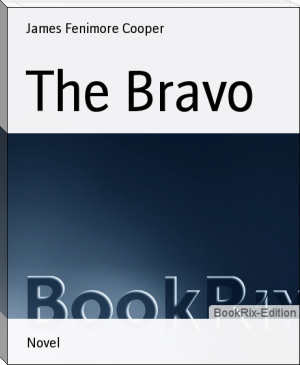Catriona by Robert Louis Stevenson (best motivational books of all time TXT) 📖

- Author: Robert Louis Stevenson
Book online «Catriona by Robert Louis Stevenson (best motivational books of all time TXT) 📖». Author Robert Louis Stevenson
I have been the more careful to narrate this passage of my reflections, because I think it is of some utility, and may serve as an example to young men. But there is reason (they say) in planting kale, and even in ethic and religion, room for common sense. It was already close on Alan’s hour, and the moon was down. If I left (as I could not very decently whistle to my spies to follow me) they might miss me in the dark and tack themselves to Alan by mistake. If I stayed, I could at the least of it set my friend upon his guard which might prove his mere salvation. I had adventured other peoples’ safety in a course of self-indulgence; to have endangered them again, and now on a mere design of penance, would have been scarce rational. Accordingly, I had scarce risen from my place ere I sat down again, but already in a different frame of spirits, and equally marvelling at my past weakness and rejoicing in my present composure.
Presently after came a crackling in the thicket. Putting my mouth near down to the ground, I whistled a note or two, of Alan’s air; an answer came in the like guarded tone, and soon we had knocked together in the dark.
“Is this you at last, Davie?” he whispered.
“Just myself,” said I.
“God, man, but I’ve been wearying to see ye!” says he. “I’ve had the longest kind of a time. A’ day, I’ve had my dwelling into the inside of a stack of hay, where I couldnae see the nebs of my ten fingers; and then two hours of it waiting here for you, and you never coming! Dod, and ye’re none too soon the way it is, with me to sail the morn! The morn? what am I saying?—the day, I mean.”
“Ay, Alan, man, the day, sure enough,” said I. “It’s past twelve now, surely, and ye sail the day. This’ll be a long road you have before you.”
“We’ll have a long crack of it first,” said he.
“Well, indeed, and I have a good deal it will be telling you to hear,” said I.
And I told him what behooved, making rather a jumble of it, but clear enough when done. He heard me out with very few questions, laughing here and there like a man delighted: and the sound of his laughing (above all there, in the dark, where neither one of us could see the other) was extraordinary friendly to my heart.
“Ay, Davie, ye’re a queer character,” says he, when I had done: “a queer bitch after a’, and I have no mind of meeting with the like of ye. As for your story, Prestongrange is a Whig like yoursel’, so I’ll say the less of him; and, dod! I believe he was the best friend ye had, if ye could only trust him. But Simon Fraser and James More are my ain kind of cattle, and I’ll give them the name that they deserve. The muckle black deil was father to the Frasers, a’body kens that; and as for the Gregara, I never could abye the reek of them since I could stotter on two feet. I bloodied the nose of one, I mind, when I was still so wambly on my legs that I cowped upon the top of him. A proud man was my father that day, God rest him! and I think he had the cause. I’ll never can deny but what Robin was something of a piper,” he added; “but as for James More, the deil guide him for me!”
“One thing we have to consider,” said I. “Was Charles Stewart right or wrong? Is it only me they’re after, or the pair of us?”
“And what’s your ain opinion, you that’s a man of so much experience?” said he.
“It passes me,” said I.
“And me too,” says Alan. “Do ye think this lass would keep her word to ye?” he asked.
“I do that,” said I.
“Well, there’s nae telling,” said he. “And anyway, that’s over and done: he’ll be joined to the rest of them lang syne.”
“How many would ye think there would be of them?” I asked.
“That depends,” said Alan. “If it was only you, they would likely send two-three lively, brisk young birkies, and if they thought that I was to appear in the employ, I daresay ten or twelve,” said he.
It was no use, I gave a little crack of laughter.
“And I think your own two eyes will have seen me drive that number, or the double of it, nearer hand!” cries he.
“It matters the less,” said I, “because I am well rid of them for this time.”
“Nae doubt that’s your opinion,” said he; “but I wouldnae be the least surprised if they were hunkering this wood. Ye see, David man; they’ll be Hieland folk. There’ll be some Frasers, I’m thinking, and some of the Gregara; and I would never deny but what the both of them, and the Gregara in especial, were clever experienced persons. A man kens little till he’s driven a spreagh of neat cattle (say) ten miles through a throng lowland country and the black soldiers maybe at his tail. It’s there that I learned a great part of my penetration. And ye need nae tell me: it’s better than war; which is the next best, however, though generally rather a bauchle of a business. Now the Gregara have had grand practice.”
“No doubt that’s a branch of education that was left out with me,” said I.
“And I can see the marks of it upon ye constantly,” said Alan. “But that’s the strange thing about you folk of the college learning: ye’re ignorat, and ye cannae see ’t. Wae’s me for my Greek and Hebrew; but, man, I ken that I dinnae ken them—there’s the differ of it. Now, here’s you. Ye lie on your wame a bittie in the bield of this wood, and ye tell me that ye’ve cuist off these Frasers and Macgregors. Why? Because I couldnae see them, says you. Ye blockhead, that’s their livelihood.”
“Take the worst of it,” said I, “and what are we to do?”
“I am thinking of that same,” said he. “We might twine. It wouldnae be greatly to my taste; and forbye that, I see reasons against it. First, it’s now unco dark, and it’s just humanly possible we might give them the clean slip. If we keep together, we make but the ae line of it; if we gang separate, we make twae of them: the more likelihood to stave in upon some of these gentry of yours. And then, second, if they keep the track of us, it may come to a fecht for it yet, Davie; and then, I’ll confess I would be blythe to have you at my oxter, and I think you would be none the worse of having me at yours. So, by my way of it, we should creep out of this wood no further gone than just the inside of next minute, and hold away east for Gillane, where I’m to find my ship. It’ll be like old days while it lasts, Davie; and (come the time) we’ll have to think what you should be doing. I’m wae to leave ye here, wanting me.”
“Have with ye, then!” says I. “Do ye gang back where you were stopping?”
“Deil a fear!” said Alan. “They were good folks to me, but I think they would be a good deal disappointed if they saw my bonny face again. For (the way times go) I am nae just what ye could call a Walcome Guest. Which makes me the keener for your company, Mr. David Balfour of the Shaws, and set ye up! For, leave aside twa cracks here in the wood with Charlie Stewart, I have scarce said black or white since the day we parted at Corstorphine.”
With which he rose from his place, and we began to move quietly eastward through the wood.
ON THE MARCH AGAIN WITH ALAN
It was likely between one and two; the moon (as I have said) was down; a strongish wind, carrying a heavy wrack of cloud, had set in suddenly from the west; and we began our movement in as black a night as ever a fugitive or a murderer wanted. The whiteness of the path guided us into the sleeping town of Broughton, thence through Picardy, and beside my old acquaintance the gibbet of the two thieves. A little beyond we made a useful beacon, which was a light in an upper window of Lochend. Steering by this, but a good deal at random, and with some trampling of the harvest, and stumbling and falling down upon the banks, we made our way across country, and won forth at last upon the linky, boggy muirland that they call the Figgate Whins. Here, under a bush of whin, we lay down the remainder of that night and slumbered.
The day called us about five. A beautiful morning it was, the high westerly wind still blowing strong, but the clouds all blown away to Europe. Alan was already sitting up and smiling to himself. It was my first sight of my friend since we were parted, and I looked upon him with enjoyment. He had still the same big great-coat on his back; but (what was new) he had now a pair of knitted boot-hose drawn above the knee. Doubtless these were intended for disguise; but, as the day promised to be warm, he made a most unseasonable figure.
“Well, Davie,” said he, “is this no a bonny morning? Here is a day that looks the way that a day ought to. This is a great change of it from the belly of my haystack; and while you were there sottering and sleeping I have done a thing that maybe I do very seldom.”
“And what was that?” said I.
“O, just said my prayers,” said he.
“And where are my gentry, as ye call them?” I asked.
“Gude kens,” says he; “and the short and the long of it is that we must take our chance of them. Up with your foot-soles, Davie! Forth, Fortune, once again of it! And a bonny walk we are like to have.”
So we went east by the beach of the sea, towards where the salt-pans were smoking in by the Esk mouth. No doubt there was a by-ordinary bonny blink of morning sun on Arthur’s Seat and the green Pentlands; and the pleasantness of the day appeared to set Alan among nettles.
“I feel like a gomeral,” says he, “to be leaving Scotland on a day like this. It sticks in my head; I would maybe like it better to stay here and hing.”
“Ay, but ye wouldnae, Alan,” said I.
“No, but what France is a good place too,” he explained; “but it’s some way no the same. It’s brawer I believe, but it’s no Scotland. I like it fine when I’m there, man; yet I kind of weary for Scots divots and the Scots peat-reek.”
“If that’s all you have to complain of, Alan, it’s no such great affair,” said I.
“And it sets me ill to be complaining, whatever,” said he, “and me but new out of yon deil’s haystack.”
“And so you were unco weary of your haystack?” I asked.
“Weary’s nae word for it,” said he. “I’m not just precisely a man that’s easily cast down; but I do better with caller air and the lift above my head. I’m like the auld Black Douglas (wasnae’t?) that likit better to hear the laverock sing than the mouse cheep. And yon place, ye see, Davie—whilk was a very suitable place to hide in, as I’m free to own—was pit mirk from dawn to gloaming. There were days (or nights, for how would I tell one from other?) that seemed to me as long as a long winter.”
“How did you know the hour to bide your tryst?” I asked.
“The goodman brought me my meat and a drop brandy, and a candle-dowp to eat it by, about eleeven,” said he. “So, when I had swallowed a bit, it would he time to be getting to the wood. There I lay and wearied for ye sore, Davie,” says
 Have you ever thought about what fiction is? Probably, such a question may seem surprising: and so everything is clear. Every person throughout his life has to repeatedly create the works he needs for specific purposes - statements, autobiographies, dictations - using not gypsum or clay, not musical notes, not paints, but just a word. At the same time, almost every person will be very surprised if he is told that he thereby created a work of fiction, which is very different from visual art, music and sculpture making. However, everyone understands that a student's essay or dictation is fundamentally different from novels, short stories, news that are created by professional writers. In the works of professionals there is the most important difference - excogitation. But, oddly enough, in a school literature course, you don’t realize the full power of fiction. So using our website in your free time discover fiction for yourself.
Have you ever thought about what fiction is? Probably, such a question may seem surprising: and so everything is clear. Every person throughout his life has to repeatedly create the works he needs for specific purposes - statements, autobiographies, dictations - using not gypsum or clay, not musical notes, not paints, but just a word. At the same time, almost every person will be very surprised if he is told that he thereby created a work of fiction, which is very different from visual art, music and sculpture making. However, everyone understands that a student's essay or dictation is fundamentally different from novels, short stories, news that are created by professional writers. In the works of professionals there is the most important difference - excogitation. But, oddly enough, in a school literature course, you don’t realize the full power of fiction. So using our website in your free time discover fiction for yourself. 




Comments (0)